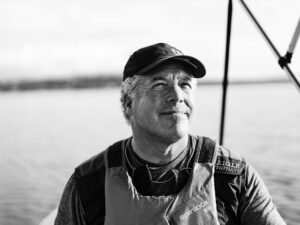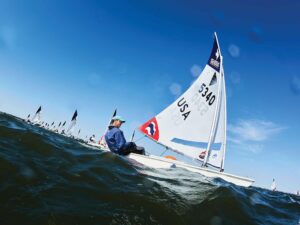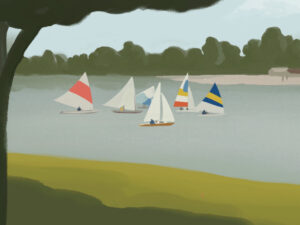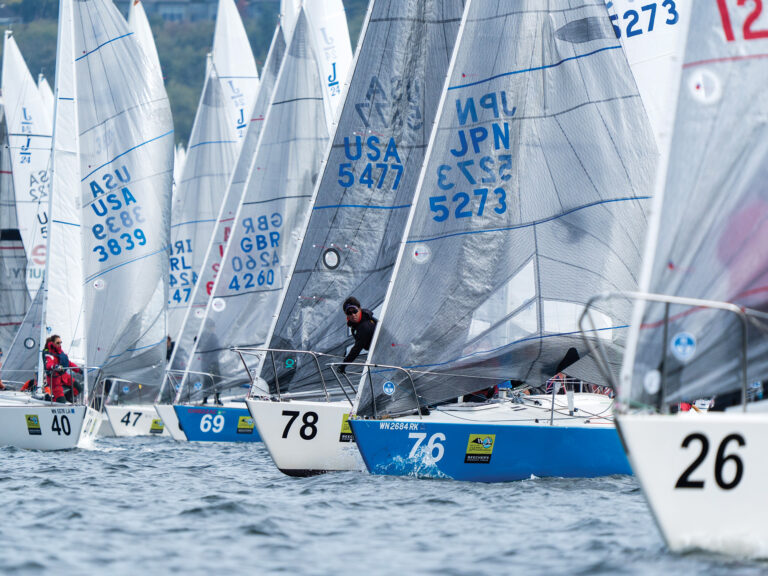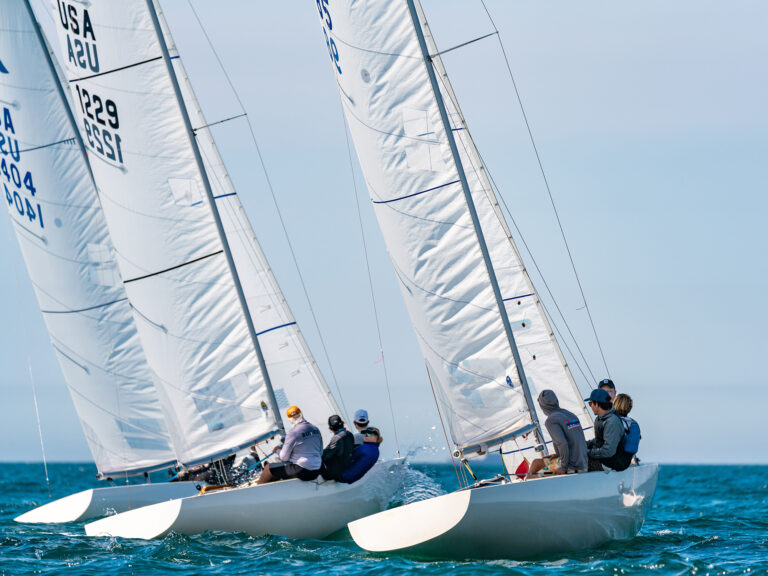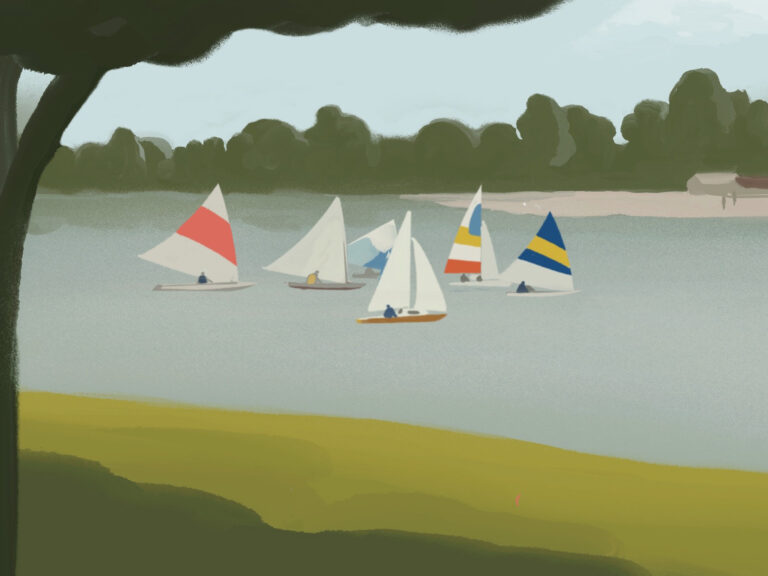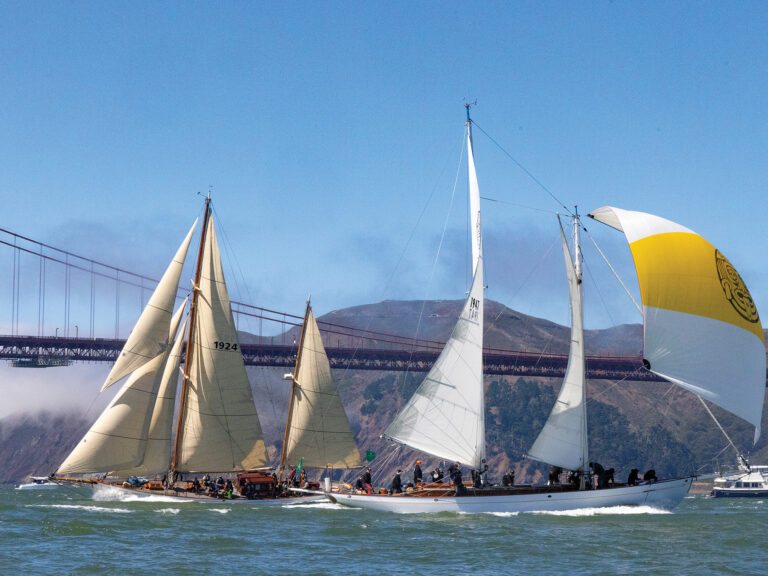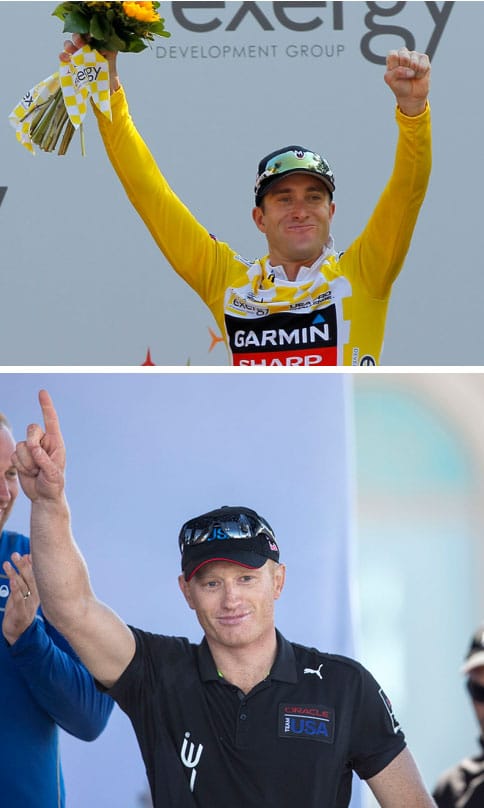
120827_VdV+Spithill
Last night, between putting the kids to bed and doing the same for myself, I had a few hours to kill.I thought about trying to catch up on a few of the TV series I have on the DVR, but I just wasn’t sure I had the focus for anything with a complicated plot line.
I half-watched some pre-season football while eating dinner. Normally I wouldn’t bother, but with my fantasy football draft around the corner it seemed like a good time to do a little research. Plus the New York Jets were playing and, as a New England Patriots fan, I do like watching them struggle (which they did).
When I’d tired of that, I consulted my DVR, which had recorded two sporting programs from earlier that day: the final day of the America’s Cup World Series from San Francisco and the final stage of the USA Pro Cycling Challenge from Colorado.
As you might suspect—otherwise I wouldn’t be writing this column—I picked the latter.
When it comes to cycling, I’m the equivalent of a weeknight jib-and-main racer. I can talk the talk, but my walk is slow and gimpy. I’m a much more serious sailor. And I can’t say that I watched the cycling because the action was more intense. The final day of the USA PCC was a 9-mile time trial through downtown Denver. Time trials are generally the dullest of all road cycling events. There’s no tactics, breakaways, or 10-rider pile-ups. It’s just one guy, hunched in an extremely uncomfortable position, churning away at the absolute limit of his endurance. I’m sure the sailing on San Francisco Bay was more exciting.
I watched the cycling because I cared who won. Because it mattered who won, both to cycling fans around the nation and to the athletes participating. Now that’s not fair to the 55 or so sailors who pushed themselves to the limits sailing on San Francisco Bay last weekend. I know they are tremendous competitors.
But to date, the one thing the America’s Cup World Series has lacked—which says a lot is right with this venture, by the way—is the ability to show the public how much it means to the athletes to win.
I posed this question to Stephen Barclay, the CEO of America’s Cup Event Authority, a few months ago. I framed it around the worry that with the AC72s coming on line that the sailors’ focus would shift to those boats and away from the ACWS. He responded that he wasn’t concerned with that. These are professional sailors, he said, it’s their job to care about winning.
Sorry Stephen, but I’ve met far too many professional sailors who are solely concerned about the check they’re going to cash at the end of the regatta.
And perhaps this is more my problem. Spend too much time in the muddled pro-am world between the America’s Cup and the weeknight PHRF series and you’re bound to come away slightly jaded. (Not to mention the fact that a large percentage of the 95 riders in the final stage of the PCC were riding just hard enough to keep their jobs as they had no chance at any individual honors)
But I sense that I’m not alone in this regard. Whether you watch it on site or on the TV, the America’s Cup World Series is great spectacle. But I wonder whether it’s no-holds-barred pursuit of the extreme sports audience has left it with a similar problem to other edgy, emerging sports: Once you get your fill of the eye candy, you struggle to find a reason to tune in again.
In his post-race interview, USA Pro Cycling Challenge champion Christian Vande Velde spoke about how much this win meant to him, how happy he was, and how much of the credit should go to his teammates. I’m sure James Spithill’s interview covered much of the same ground after his Oracle Team USA Spithill crew won (again, but that’s a separate column) the fleet racing portion of the ACWS stop in San Francisco.
The question I’m struggling to answer—and the one that the ACWS needs to figure out quickly if it’s to survive beyond next spring—is why Vande Velde’s comments seemed so much more genuine.

